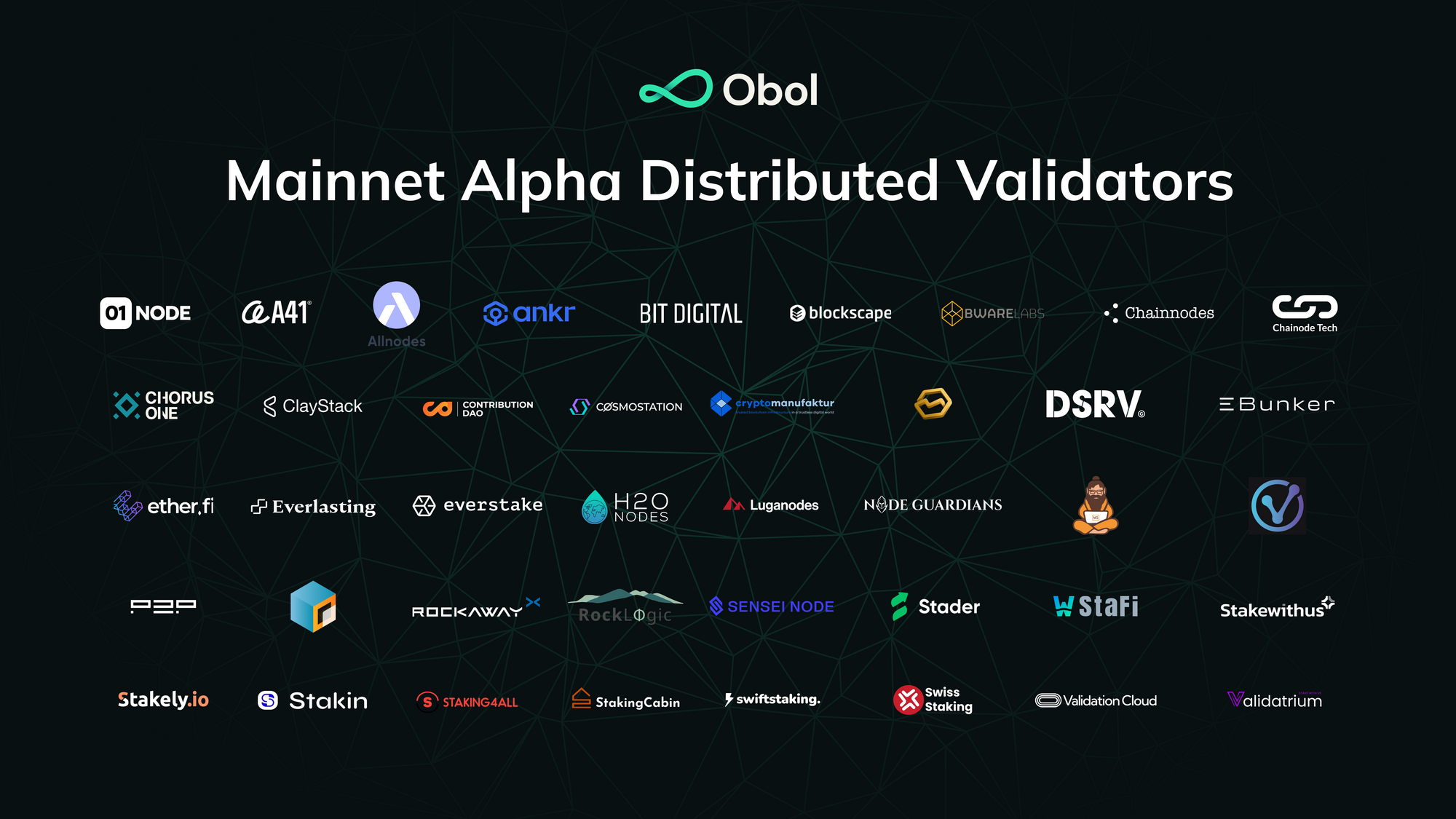Mainnet Alpha DVs & Large Scale Performance Testing
As we continue to make progress towards our full V1 launch, we'd like to share key updates on our Alpha phase and upcoming Ecosystem Performance Testing efforts.

We’d like to share some important updates as we continue our steady march towards our full V1 launch. There are two major vectors that the ecosystem has been involved in—deploying and running the first set of Mainnet DVs in our Alpha phase, and testing the performance of DVs. Here are some key highlights. 👀
Mainnet Alpha Distributed Validators
Back in April of this year, we launched our Alpha phase, which began the first set of Mainnet Distributed Validators deployed by the staking community (our core team had deployed the first ever Mainnet DV in December 2022). Almost five months later, we’re happy to share that the participation in this phase has been better than we had hoped for, with more than 45 organisations running DVs on Mainnet in solo or multi-org clusters. You can see all of the Obol Alpha organisations in the graphic above.
Large Operator Performance Testing

We’re also happy to announce that we’ve officially begun performance testing DVs with some of the largest operators in the industry. Collaborating with industry leaders like Figment, Blockdaemon, Infstones, DSRV, and Hashquark. This marks an important step in preparing distributed validators for widespread adoption in the Ethereum ecosystem.
Alpha DV Performance
It isn’t enough to prove that DVs can be deployed on Mainnet. We take pride in ensuring that Mainnet DVs can be run with high uptime and effectiveness. Over the past 100 days, our Mainnet distributed validators have achieved performance metrics within ~1% of the network average. We will share a more detailed performance report, including learnings, in the near future.

At-Home Validator Participation
During our Alpha phase, we also collaborated with EtherFi, DappNode, and Avado to allow at-home validators to run DVs. This initiative is codenamed Operation Solo Staker.
We now have 27 at-home validators running four clusters across the world (with many lined up to join!). You can find all of the details about this initiative here.
We will be joining all of the Alpha organisations and solo stakers to share more details about their experience setting up and running DVs on Mainnet through a series of Spaces and other content. Stay tuned for much more!
Testing The Performance of DVs in Large-Scale Environments
In addition to deploying DVs on Mainnet for the first time, we are also continuing the crucial process of acquiring comprehensive performance data to ensure that Charon can scale up to handle large-scale deployments. Last month, we shared the results of the work we performed with the blockchain ecosystem observatory, Miga Labs, to conduct extensive performance tests on environments with up to 3,000 Görli validators.
In the next phase, to better understand the limits and potential of distributed validator clusters under different scenarios, we are leveraging the capabilities of some of the industry’s largest operators in a structured, large-scale testing effort on the Görli and Holesky testnets.
As part of this effort, several teams are conducting tests on DV clusters of varying sizes and client configurations, assessing their performance and impact on the operational efficiencies of large-scale staking operations. This testing effort will bring key insights into the performance and potential of distributed validator technology for increasing resiliency and security in their operations.
Overview of Testing Structure
Operators are currently deploying distributed validator clusters of different node counts on the Görli testnet, testing with varying cluster sizes (3, 4, 6, 7, and 10 nodes) while pushing the number of validators per cluster to the thousands.
The testing effort will assess the effectiveness and success of the various validator duties within each cluster, as well as key metrics such as missed duties, inclusion distance, and earned validator rewards. The testing effort will also be focused on analysing the impact of MEV-boost on these configurations and the operational cost efficiencies of running DV clusters.
All collected data will be ingested for further analysis, and Obol Labs will collaborate with the different participants to produce performance reports and to make raw data available. Another key area of research for this effort will be to assess the cost per validator for specific types of infrastructure and DVT’s potential impact on enterprise validator profitability.
We appreciate the support each of our partner operators have given towards furthering the development of DVT and their commitment towards helping improve the resiliency of the Ethereum network.
This testing effort is a key milestone that will provide our partners with the necessary data points to confidently deploy distributed validators on Ethereum mainnet at scale. Through this comprehensive testing, we aim to help our partners optimise their infrastructure and take advantage of the capabilities of DVs while also providing key performance insights for our community as we continue on our road to V1.
Stay tuned for the results of this testing effort!
Want to get involved with Obol? Fill out this interest form for our Alpha (or future) phases.

